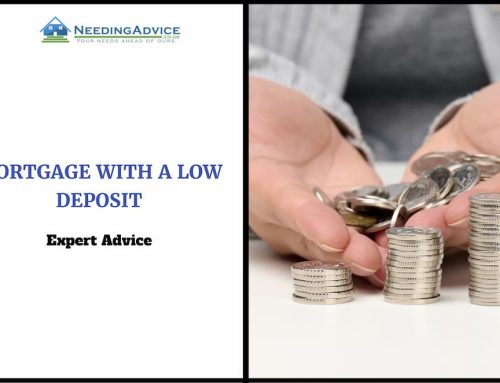Getting a short-term let mortgage is a possible but complicated process.
Short-term let mortgages are designed for property owners who want to rent out their properties on a short-term basis, typically for periods of less than six months. These mortgages are different from traditional buy-to-let mortgages, which are intended for long-term rental arrangements. Obtaining a short-term let mortgage can be more challenging due to the higher risk associated with shorter rental periods.
One of the key factors that lenders will consider when determining eligibility for a short-term let mortgage is the potential rental income that the property can generate. Lenders will likely require proof of how much you expect to earn from renting out your property and may also assess the property’s location, size, and condition to determine its rental value.
In addition to rental income, lenders will also consider your own financial situation, credit history, and ability to make mortgage payments. They will want to ensure that you have a reliable source of income and a good credit score before approving you for a short-term let mortgage.
It is important to note that not all lenders offer short-term let mortgages, so it may take some time to find a lender that is willing to work with you. Additionally, interest rates on short-term let mortgages are typically higher than those for traditional buy-to-let mortgages, so be prepared for potentially higher costs.
Before applying for a short-term let mortgage, it is important to thoroughly research and understand the terms and conditions of the loan. Make sure you are aware of any fees, penalties, or restrictions that may apply. It may also be helpful to work with a mortgage adviser who can guide you through the process and help you find the best mortgage option for your needs.
In summary, obtaining a short-term let mortgage can be more challenging than a traditional buy-to-let mortgage due to the higher risk involved. Lenders will consider factors such as potential rental income, your own financial situation, credit history, and property location when determining eligibility. It is important to thoroughly research and understand the terms of the loan before applying, and working with a mortgage adviser may be beneficial in finding the best mortgage option for your short-term rental property.
Can I get a short-term let mortgage?
Yes, you can get a short-term let mortgage if you qualify the lender’s criteria.
The surge in popularity of the staycation has made an investment in a holiday home an even more attractive proposition for many landlords.
Indeed, there is plenty of evidence to suggest that short-term holiday lets are more lucrative than longer-term tenancies.
A posting by Coast and Country Cottages on the 28th of January 2022, for example, suggests that the landlord of a single holiday let property earns an average of £21,000 annually.
Why are lenders reluctant to accept Airbnb-style lets?
The growth in staycations and increase in demand for short-term accommodation has also been fuelled by the likes of internet platforms such as Airbnb.
While mortgage lenders naturally welcome money-making property investments, a holiday let mortgage can prove somewhat more difficult to find. Some lenders have fought shy of lending for property intended for letting on a short-term basis akin to AirbnbWhat is Airbnb? Airbnb is an online platform that allows pro... arrangements. A so-called Airbnb mortgage, therefore, might be especially difficult to secure.
Lenders’ reluctance stems from the following considerations:
- because a lot more different people are going to have access to the property for short stays, there is a greater risk of loss or damage to either the structure and fabric of the building, its contents, or both;
- it’s in the nature of a holiday let – typically seasonal – that voids are longer and more frequent;
- some of the accommodation platforms, such as Airbnb, have gained a poor reputation for hosting difficult, rowdy, or disorderly tenants, including stag and hen parties – or worse.
For reasons such as these, many lenders will require that any let property – including holiday lets – be let on the basis of an assured shorthold tenancy (AST). The minimum duration for any assured shorthold tenancy is six months, and that period cannot be made up of successive short-term lets – effectively ruling out any Airbnb-style business.
How much deposit will I need for a short-term mortgage?
Just as with any mortgage, you’ll need to contribute a deposit. It shows the lender that you are serious about purchasing the property.
But a deposit also gives the lender an element of reassurance in the event of you defaulting on repayment of the loan and, in the meantime, its value has taken a hit. If you have paid a deposit of 15%, for example, the lender can take comfort from the fact that the value of the property can have dropped by as much as 15%, and they will still be able to recover the full amount of the mortgage advance.
This helps to illustrate the fact that there is a link between the amount of deposit you may need for any particular type of mortgage and the lender’s assessment of risk. The lender will look carefully at the size of any mortgage advance in proportion to the value of the property – the so-called loan-to-value (LTV) ratio of the mortgage.
The lower the LTV, the bigger the deposit you have put down, the greater the share of the property you already own and the less risk that is taken on by the mortgage lender.
In this context, a mortgage on a short-term holiday let property will be considered a higher risk than the standard residential mortgage offered to an owner-occupier. While the latter might be offered a mortgage with an LTV as high as 95% (you only need a deposit to cover the remaining 5% of the purchase price), if you are looking for a holiday short-term let mortgage, the LTV might be as low as 70% to 75%. In other words, the greater risk to the lender of a mortgage for a short-term let property means that you are likely to need a deposit of between 25% and 30%.
What else do I need to consider with a short-term let?
Even if you are successful in raising a mortgage on your holiday let property, remember to check that the freehold is free of any covenants that might prevent its use for short-term lets.
You might also want to confirm the absence of local authority planning restrictions or other regulations that limit your use of the property for short-term lets. In order to protect longer-term rented accommodation for local residents, for example, in London, there is the so-called “90-day rule”. This limits short-term lets of any one property to a maximum of just 90 days a year.
Next steps – Short Term Let Mortgage
Although many property investors have recognised the potential of dwellings used for short-term holiday lets, you might want to do your homework thoroughly before making a purchase.
Specialist holiday let mortgages – even Airbnb mortgages – are available, but be prepared to find a bigger than usual deposit that will typically represent between 25% and 30% of the purchase price.
Before taking the plunge and making such an investment, you might want to consult an experienced broker with expertise in this niche of the mortgage market – such as us here at NeedingAdvice.co.uk.
Frequently Asked Questions
What Constitutes a Short Term Let in the Realm of Holiday Accommodation?
A short term let refers to a furnished holiday property rented out for short periods of time, typically less than six months. This type of property is increasingly popular among holidaymakers seeking temporary lodging, offering a flexible alternative to traditional long-term tenancy agreements.
Can You Explain the Allure of a Short-Term Let Mortgage for Investment Property Owners?
Short term let mortgages are designed specifically for properties intended for holiday letting or other short term rental arrangements. These mortgages offer property owners the flexibility to capitalise on the lucrative holiday accommodation market, with mortgage terms that accommodate the unique earning potential and void periods typical of holiday properties.
How Do Mortgage Rates for Short Term Let Mortgages Compare to Standard Buy to Let Mortgages?
The mortgage rate for a short term let can vary, often featuring a slightly higher interest rate to reflect the variable income and higher risk associated with short term holiday rentals. Whether you secure a fixed or variable rate will depend on the mortgage product offered by your mortgage lender or building society.
What Role Does a Mortgage Broker Play in Securing a Mortgage for a Holiday Let?
An experienced mortgage broker can be invaluable in navigating the complex market of mortgages for holiday let properties. They can advise on the best mortgage deals, taking into account the mortgage applicant’s personal circumstance, and help find a mortgage product with favourable terms and cost for comparison.
Is it Possible to Use a Mortgage Calculator to Estimate Monthly Repayments for a Short Term Let Mortgage?
Yes, using a mortgage calculator can provide an estimate of your monthly mortgage repayment, including any additional costs, such as product fees. This tool helps property owners to budget effectively, ensuring the mortgage deal they choose is cost-effective and aligns with their financial planning for their holiday property.
What Criteria Do Mortgage Providers Use to Approve Short Term Let Mortgages?
Mortgage providers assess a range of criteria, including the applicant’s personal income, minimum incomeThe minimum income required for a borrower to be eligible fo... requirements, and the purchase price of the property. They also consider the property type, ensuring it meets minimum property standards for holiday letting. Lending criteria may also vary if the property is owned by a limited company rather than an individual.
How Important is Legal Advice When Considering a Short Term Tenancy Agreement?
Obtaining legal advice is crucial when drafting a short term tenancy agreement, ensuring it complies with all legal requirements and adequately protects the rights of both the property owner and the tenant. This step is essential to avoid any potential legal pitfalls or criminal offences related to property letting.
What Tax Implications Should Property Owners Be Aware Of With Holiday Lettings?
Owners of holiday rental properties must consider the tax implications, including the need to declare rental income on their tax return. The furnished holiday letting classification can offer certain tax advantages, but it’s advisable to seek professional advice to navigate these benefits effectively.
Are There Any Additional Costs Associated With Obtaining a Buy-O-Llet Mortgage for a Holiday Property?
Yes, obtaining a buy-to-let mortgage for a holiday property can incur additional costs, including mortgage application fees, product fees, and potentially higher repayment charges. Property owners should factor these into their financial planning to ensure the investment remains viable.
Can Joint Applicants Secure a Mortgage for a Holiday Let?
Joint applicants can apply for a mortgage on a holiday property, potentially making it easier to meet the mortgage provider’s minimum income and maximum loan requirements. However, all applicants’ personal circumstances and credit histories will be assessed as part of the mortgage application process.
What are the Benefits of Choosing a Mortgage Adviser Specialised in Holiday Letting?
A mortgage adviser with expertise in holiday letting can provide tailored advice on the best mortgage product for your needs, considering all aspects of your investment property and personal financial situation. Their experience can help you secure a mortgage deal that optimises your investment’s profitability and sustainability.
How Does the Repayment Charge Impact the Overall Mortgage Cost for a Short Term Let?
The repayment charge, or the cost associated with repaying the mortgage either on an interest-only basis or over a shorter period, can significantly affect the overall mortgage cost. Property owners should carefully consider these charges when selecting a mortgage term and product to ensure the investment remains cost-effective over time.







Leave A Comment